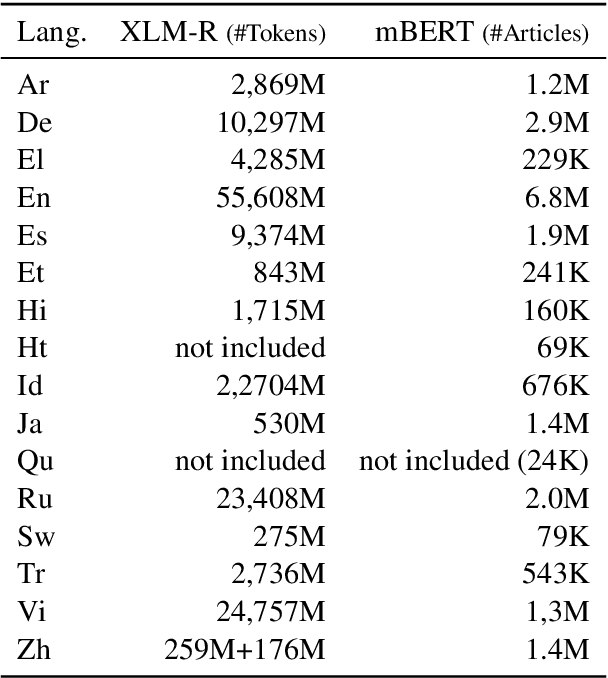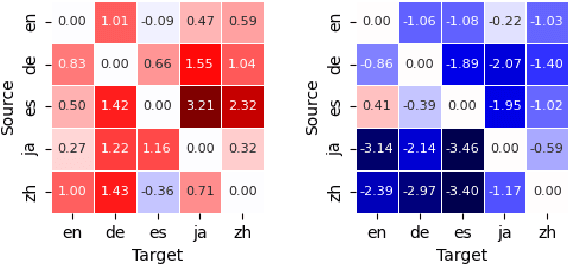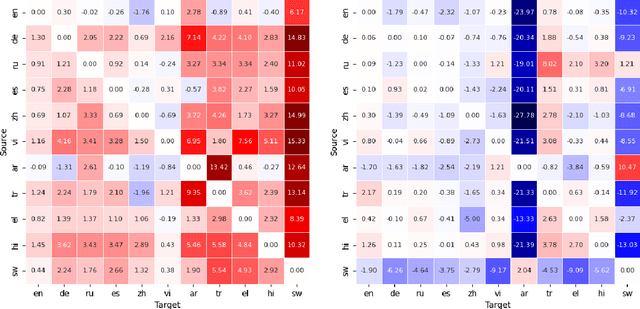The Impact of Language Adapters in Cross-Lingual Transfer for NLU
Paper and Code
Jan 31, 2024



Modular deep learning has been proposed for the efficient adaption of pre-trained models to new tasks, domains and languages. In particular, combining language adapters with task adapters has shown potential where no supervised data exists for a language. In this paper, we explore the role of language adapters in zero-shot cross-lingual transfer for natural language understanding (NLU) benchmarks. We study the effect of including a target-language adapter in detailed ablation studies with two multilingual models and three multilingual datasets. Our results show that the effect of target-language adapters is highly inconsistent across tasks, languages and models. Retaining the source-language adapter instead often leads to an equivalent, and sometimes to a better, performance. Removing the language adapter after training has only a weak negative effect, indicating that the language adapters do not have a strong impact on the predictions.
 Add to Chrome
Add to Chrome Add to Firefox
Add to Firefox Add to Edge
Add to Edge